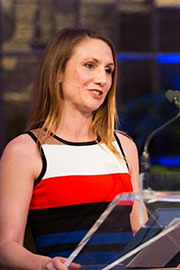Tanya's Christmas message

I moved to the other side of the world to escape many of the familial rituals and obligations of Christmas. My favourite Christmases past have been spent dodging northern winters and the myths we live by. Next week, I intend to be lazing by the beach conversing and consuming with my loved ones and hopefully challenging the gendered structures of festive family rituals. All that cooking, consuming, conciliating and cleaning was and is rarely shared equally. My surveys and interviews with family historians in Australia, England and Canada reveals that the passionate and diligent labour of family historians is producing detailed knowledge of social history and a revaluation of motherhood on an individual and collective level in diverse national contexts. Perhaps it is no surprise that it is women who are largely driving the boom in family history around the world.
Christmas is a time that confirms and challenges our understanding of ‘the family’. For over twenty years I’ve researched the history of the family and remain committed to challenging ‘ordinary’ people’s assumptions about family life. Family history is central to 4 projects currently being undertaken by members of the Centre for Applied History in the Faculty of Arts. One examines the practice, meanings and impact of family history, migration and multiculturalism among migrant communities to Australia and Canada from the 1970s to the present. The second is the Art and Object Engagement program led by Jane Thogerson at the Australian History Museum and Rhonda Davis at Macquarie University’s Art Gallery facilitating research into how people living with dementia engage with art and objects of social history. The third project entitled ‘Life, Love, and Labour - Jamison Valley history and heritage, 1880-1914’ involves a large team of interdisciplinary scholars including archaeologists, historians and heritage consultants, involving partnerships with NSW Parks and the Blue Mountains World Heritage Institute. It is investigating the archaeological, archival, and oral evidence relating to shale mining in and around the Jamison Valley, near Katoomba, NSW, through collaborative, community-based research with local and family historians. The fourth project is a ‘people’s history’ of motherhood in Australia which gathers data from family historians through their publications (usually self-published books held in personal collections as well as State and National libraries), surveys, personal collections of family archives, focus groups, and interviews. Millions of family historians busy producing women’s, feminist and gender history around the world have the potential to have a far greater impact on our knowledge of motherhood than most academics. It is for this reason that academic historians need to revalue the labour of family history so that we can continue to subvert the gendered structure of the discipline of history, as well as the gendered social order.
Christmas can reify particular forms of ‘family’ life – often nuclear, patriarchal and heteronormative. But family historians and their academic collaborators are showing the ways in which historical research can challenge conservative understandings of the family and incorporate adoptive, queer, and blended families. Most family historians know that there is no such thing as ‘the family’. Let’s use our down time at Christmas to expand our own definitions of family, reflecting upon how families have changed over time and what impact that makes on our lives in the present.
